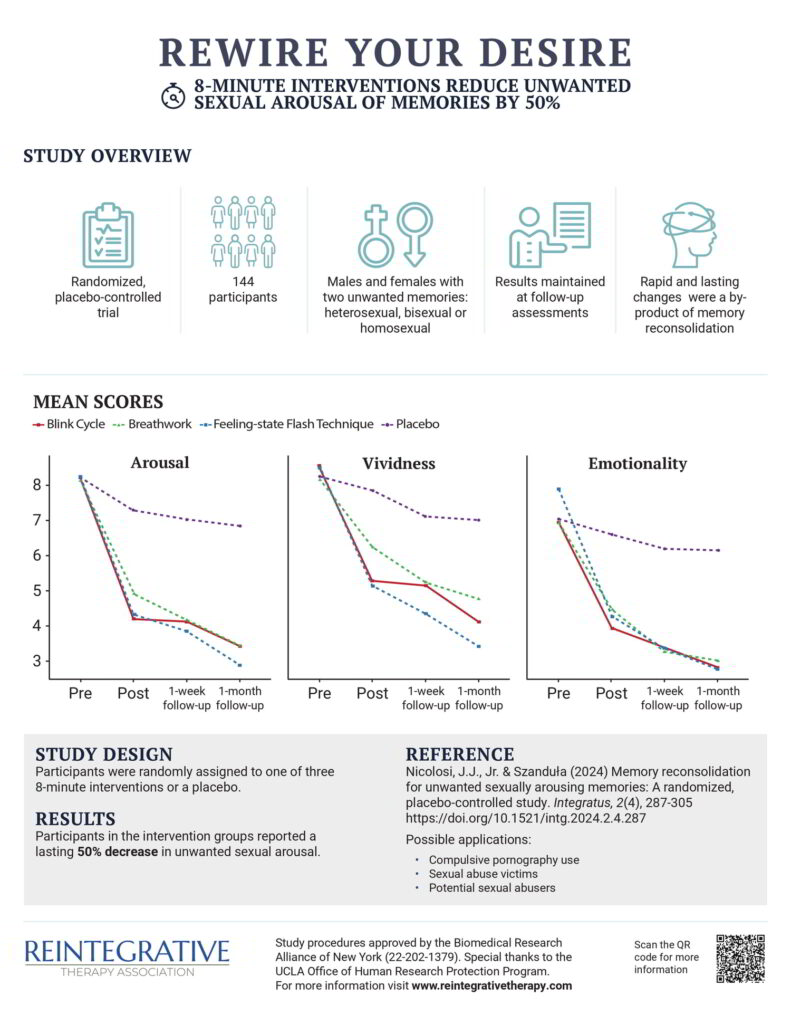J. J. Nicolosi, Jr., PhD, The Breakthrough Clinic
Jacek Szanduła, PhD, WSB Merito University
Abstract:
Background: Unwanted sexually arousing memories may diminish in arousal as a by-product of memory reconsolidation processes, but the effectiveness and durability of these processes have not been well studied.
Objectives: To investigate the effects of memory reconsolidation on unwanted sexually arousing memories, we evaluated three different 8-minute-long interventions in a randomized trial and compared them with the placebo. A total of 144 participants were randomly assigned to one of four conditions (three experimental and one placebo). They were asked to recall two unwanted sexually arousing memories that they rated a 7 or higher on a 0-10 subjective arousal scale. The participants rated arousability, vividness, and emotionality of memories both before and after the experiment and at 1-and 4-week follow-ups.
Methods: A 2-way analysis of variance (three interventions × time) was conducted to examine the effects of time, intervention type, and their interaction on the participants’ subjective experience scores (arousal, vividness, and emotionality).
Results: All three experimental interventions significantly reduced arousal, vividness, and emotionality compared to placebo. The effects were maintained at both 1-week and 4-week follow-up assessments.
Conclusion: All three experimental interventions appear to be effective in decreasing arousability, vividness, and emotionality of two unwanted sexually arousing memories simultaneously. These interventions may benefit therapeutic contexts involving sexual abuse, paraphilic disorders, or other sexually compulsive behaviors.
View and download the published experiment on ResearchGate now:





